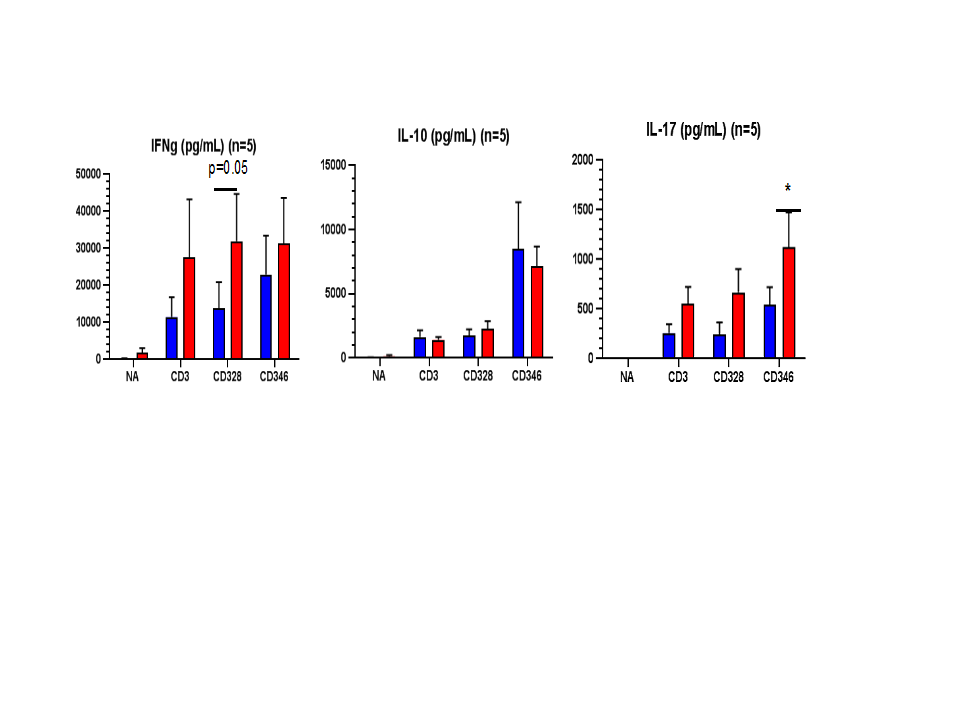Session Information
Date: Monday, October 22, 2018
Title: Systemic Sclerosis and Related Disorders – Basic Science Poster II
Session Type: ACR Poster Session B
Session Time: 9:00AM-11:00AM
Background/Purpose: Aberrant CD4+ T cell activation is implicated in disease progression in systemic sclerosis (SSc). Activated T cells release various cytokines that may drive inflammation, microvasculopathy and fibrosis. Emerging evidence indicates the critical role of complement dysregulation of CD4+ T cell responses in autoimmunity. The aim of this study was to further characterise complement signature on CD4+ T cells in SSc.
Methods: We developed a method that could provide a rapid and comprehensive exploration of T cell-complement axis in patients. We therefore employed mass cytometry (CyTOF) technology. We first generated a 35 member antibody-conjugate panel designed to delineate CD4+T sub-populations, recognize cytokines and transcription factors indicative of population expansion or contraction, and quantify 18 complement intracellular and surface proteins. Using the panel and a combinatorial pipeline for data analysis (t-SNE/viSNE followed by SPADE and Marker Enrichment Modeling), we examined T cells from healthy donors, fully recapitulating at single-cell resolution all published data assessed via ‘classical’ FACS, confocal microscopy and Western blot analyses. Pharmacological intervention with selective antagonists and agonists were used to explore the autocrine C3/C5 system in activated CD4+T cells. Cytokine profiles in cell supernatants were assessed following T cell activation by ELISA.
Results: 23 patients (18 females, age(mean±SEM), 49.6±2.2 years) with early diffuse SSc (mean disease duration 11.6±2.4 months) and mean baseline modified Rodnan skin score 21±2 were recruited for this study. Compared with healthy donors, circulating T cells from SSc patients displayed an aberrant complement signature and hyperactive phenotype. In vitro stimulation with immobilized antibodies to the T cell receptor CD3, together with antibodies to CD46, further increased complement dysregulation (in particular, increased C3 and C5 activation fragment generation and C5aR1 expression) and IFN-g and IL-17 secretion with increased IFN-g/IL-10 ratio (p<0.05, Figure 1). Furthermore, reducing activity of the autocrine ‘C5 system’ with a C5aR2 agonist corrected this deregulated phenotype with normalization of T cell activity.
Conclusion: By combining multidimensional mass cytometry with an unbiased data-driven analysis pipeline, we demonstrated, for the first time, biological coupling of dysregulated complement with aberrant T cell responses in SSc. Altered cytokine secretomes and intracellular complement activation involving C5 are critical features of T cell activation in SSc. This technique may potentially be useful for early detection of T cell dysregulation and this distinct complement signature may represent a novel biomarker in this subset of SSc patients.
Figure 1: Circulating CD4+ T cells from SSc patients have reduced capacity for Th1 contraction (* p<0.05, blue: healthy donors, red: patients)
To cite this abstract in AMA style:
Arbore G, Kordasti S, Kemper C, Hourcade D, Costantini B, Placais L, Mitchell L, Ellis R, Denton CP, Abraham D, Ong VH. Mass Cytometry Analysis Detects Dysregulated T Cell Complement Responses in Diffuse Cutaneous Systemic Sclerosis [abstract]. Arthritis Rheumatol. 2018; 70 (suppl 9). https://acrabstracts.org/abstract/mass-cytometry-analysis-detects-dysregulated-t-cell-complement-responses-in-diffuse-cutaneous-systemic-sclerosis/. Accessed .« Back to 2018 ACR/ARHP Annual Meeting
ACR Meeting Abstracts - https://acrabstracts.org/abstract/mass-cytometry-analysis-detects-dysregulated-t-cell-complement-responses-in-diffuse-cutaneous-systemic-sclerosis/

